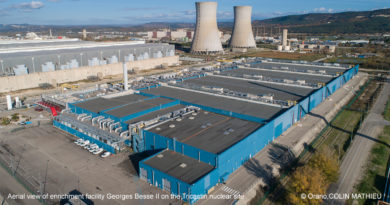
Deployment of Artificial Intelligence is key to European competitiveness
Artificial Intelligence (AI) has enormous potential to improve our lives. Not only can AI help us to tackle climate change, improve our healthcare and combat pandemics, but it will also be the backbone of economic growth in the future. Large-scale deployment of AI by European companies will significantly increase productivity of the European economy on the macroeconomic level and encourage innovation in Europe. It will improve manufacturing processes and help oversee the resilience of supply chains. Thus, AI can be a true game changer for the competitiveness of European industries, and all this is reflected to our citizens as higher standards of living.
Maybe unsurprisingly, due to the massive opportunities artificial intelligence can offer to our societies and economies, all major world economies are competing over the leading position in the development and deployment of AI.
Europe, however, has fallen far behind in the competition with the US and China – despite its long-standing tradition of being the home for science and the forerunner of development. Currently, we are not the leader in research, investment, nor in the development of artificial intelligence. As the winner of the global race over the development and deployment of AI will also be the one determining the social norms and rules in relation to its use, the EU is now speeding up its efforts to catch up by using the means that it is known for – setting standards by regulation. The Union’s Artificial Intelligence Act is promoting human-centric and responsible use of AI with the view of setting regulatory standards for the deployment and development of AI also beyond European borders in a similar manner as with the General Data Protection Regulation.
This is, however, not enough alone. The way for the EU to become the global leader in artificial intelligence is to ensure a favorable environment for European small and medium-sized enterprises (SMEs) and start-ups to deploy artificial intelligence in their operations. SMEs represent the majority of companies in Europe, and therefore they are the backbone of the European economy. In order to become the global leader in artificial intelligence, the European Union needs to drastically improve three different areas with regard to AI: investment, skilled workforce and free circulation of data.
Under the current state of affairs, the EU accounts only for 7% annual equity investments in artificial intelligence and blockchain, whereas the equivalent number for the US and China together accounts for 80%. Investments are not only crucial only for development of AI, but also for its deployment.
Large-scale integration of artificial intelligence into our economy necessitates modifications to our infrastructure, and companies are more likely to deploy, or build on, already existing AI tools instead of developing their own from scratch.
Secondly, our companies need skilled workforce in order to be able to deploy AI in their business. We need to ensure that our educational system answers to the needs of today’s digitized society, and that the aging Europe attracts skilled workforce also from third countries. The need to invest in skills does not only apply to specialists, but to our society as a whole. One third of the persons working in Europe lack basic digital skills. The key to a successful and inclusive transformation of work is to ensure that people have basic know-how and digital skills, and that employees have the opportunity to update their personal competence throughout their career.
Thirdly, any AI system needs data to function. Therefore, we need to ensure that data is not concentrated only in the hands of the few biggest digital companies and that data is accessible for our companies within the Single Market. We also need smart use of data by fostering its reuse. These are issues that legislative proposals currently prepared in the EU, such as the Data Act and the Data Governance Act, aim to answer by removing barriers to access data and by increasing the amount of data available for re-use within the EU by allowing public sector data to be used for purposes different than the ones for which the data was originally collected.
All in all, Europe should strive for a harmonised and risk-based, modern regulatory environment for artificial intelligence that encourages innovation, while preventing unnecessary administrative barriers for SMEs and start-ups.
Simultaneously, we need to ensure that the operating environment for our European companies as well as their employees is encouraging and enabling them to deploy AI in their businesses, and that companies have access to data relevant for their operations. In that way, we can have a flourishing data economy in Europe, that at the same time protects from the potential risks and harms as well as offers new opportunities and well-being to us Europeans.




